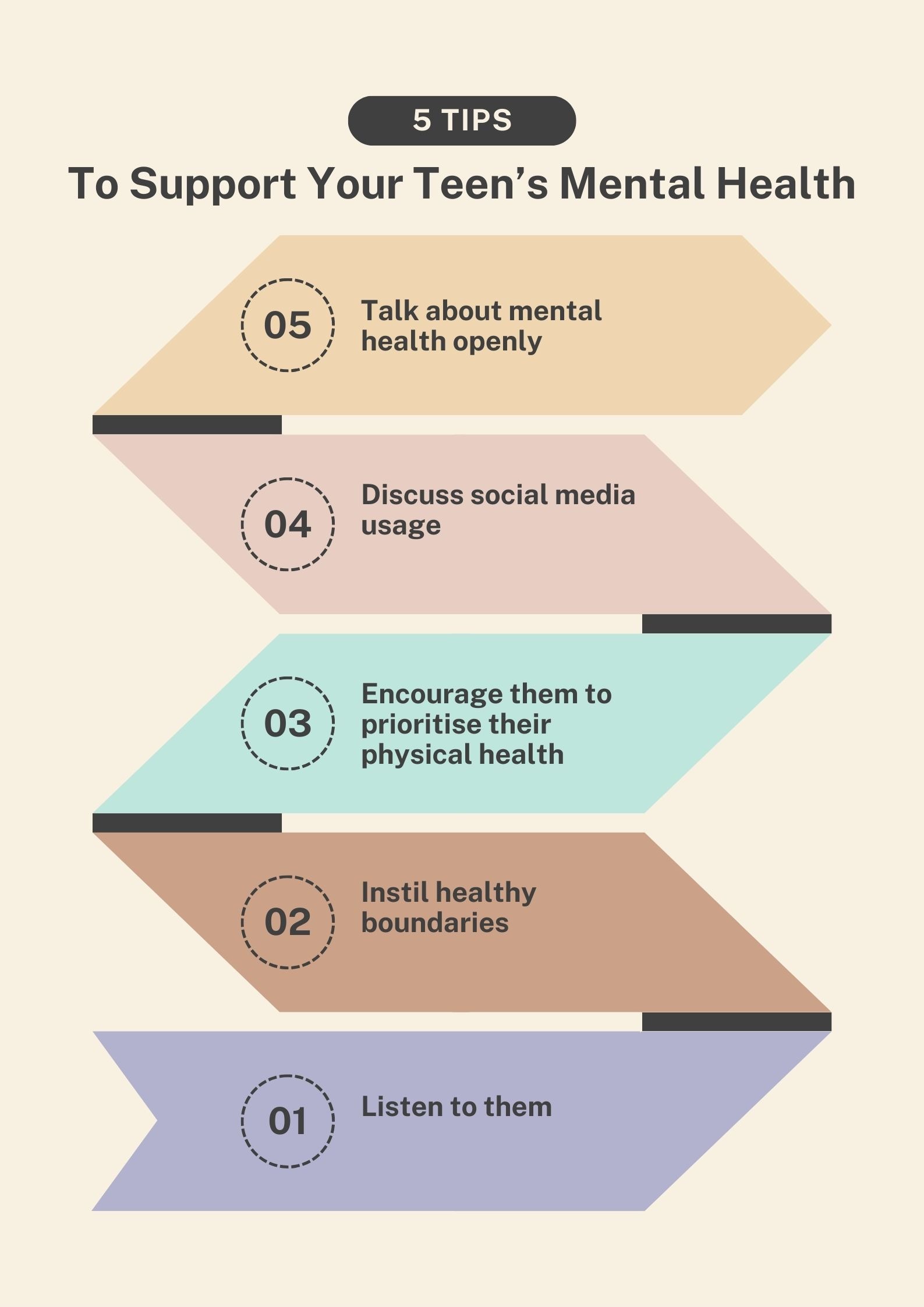Parents don’t need to be psychologists to know how to raise children successfully. Young kids come with their own challenges, but when it comes to raising teens, it’s a whole other ball game full of emotions, moodiness, and stress – but such is life, right?
Yes and no. While it might seem like raising your teen feels like riding a rollercoaster sometimes, as parents, we need to be able to pick on ill-mental health. Dealing with their emotions is new to you; it’s also new to them, but would you be able to pick up on whether your child is “just going through the motions” or if there’s a genuine problem?
Dealing with teen emotions doesn’t have to feel like taking a shot in the dark, and we’ve compiled a list of tips to help you support your teenager’s mental health.
What is mental health?
Mental health refers to how someone thinks, behaves and copes with their feelings. Mental health disorders are quite common and could involve disruptions or delays in behaviours, cognition, social skills, or the ability to regulate emotions according to their age and stage of development. Just as the physical body changes, your child’s mental health changes too, and it can get better or worse, and parents play a huge role in this.
Tips To Support Your Teen’s Mental Health

We can help our children build habits that help them be mentally healthy, in the same way that we teach them habits such as brushing their teeth, eating nutritious food and getting proper exercise to help them be physically healthy.
- Talk about mental health openly
The younger you start talking about mental health the better, obviously, while being aware of what is age and maturity-appropriate to discuss. So, many times, kids grow up never really expressing their feelings, and then one day, when they’re a “moody” teen, mom and dad finally decide to talk to them. No, that’s just awkward by that point. Talk openly and frequently about their feelings and yours when your kids are young so that when they are teenagers, it doesn’t seem out of the blue.
- Discuss social media usage
Never underestimate how much social media can impact anyone’s mental well-being. The mind-numbing scrolling and dopamine rush triggered by posting to social media makes it addictive, and the constant stream of comparison can absolutely wreck a teen’s self-esteem, not to mention the potential cyberbullying that can take place while your child is online.
You might be tempted to ban them from social media as soon as you notice something going awry, but this could only be a temporary solution to the problem. Or worse, they might resent you for taking away their beloved device. Of course, the solution is to draw boundaries with your kids when it comes to screen time, but to be most effective; you need to let your teens think it was their idea, too, so they understand the reason why those boundaries are being set. Speak openly with your teens about their social media usage and how it could affect their mental health.
- Encourage them to prioritise their physical health
When they’re little, you do everything for your kids; you choose the food, when it’s time to play, when it’s time to sleep. But when they’re teens, and they become more independent, trying to tell them to get out and get some fresh air or not drink energy drinks is going to get you a few eyeball rolls. Despite this, it’s still your job to help them make healthy decisions.
Talk to them about practising healthy habits, exercise, and eating a nutritious diet. From as young as possible, try to instil fun outdoor activities you can do as a family so that when teenage-dom comes around, they will already have healthy habits.
- Instill healthy boundaries
Teens will always push the limits until they find the boundaries. One part of helping your kids understand how to set healthy boundaries is modelling yours. When you say something, stick to it so they know what it looks like to stick to your boundaries. The other way of helping them set their boundaries is by talking to them about it, and this is something they will practise throughout the rest of their lives.
You can start by helping them say no when they feel uncomfortable or just not up to doing things with their friends. Once again, this is where modelling comes into play. Give them a few phrases to help them. For instance, if they do not want to hang out with friends, teach them to politely decline with, “Thanks for the offer, but maybe next time.”
- Listen to them
This one is easier said than done because sometimes we just want to fix all our kid’s problems, whereas sometimes they just need someone to listen and be there for them. When actively listening to your teen, encourage them to keep talking and use phrases like “I understand” or “Tell me more”. By just listening, they may invite you to give suggestions.
Should you consider taking a course in child and adolescent mental health to support your teen?

Furthering your education and preparing to support your teen’s mental health is always a noble pursuit. Taking a course like a graduate certificate in mental health doesn’t only help you identify ill mental health and give you the tools to help support your own kids and teens, but it could be the perfect way to help so many others who don’t have the support they need.
Do you find you have a knack for being able to get through to kids and teens and long to make a difference? Some parents are like second moms and dads to kids and make wonderful mentors and counsellors. If that sounds like you, then yes, you should really consider taking a graduate certificate in mental health.
Final Thoughts
At the end of the day, your teen’s mental health needs to be prioritised and you have a huge part to play in helping them develop a healthy mental state. All you have to do is be there for them, be an ear to listen and provide them with wise counsel, and good boundaries and you’re golden. Not all teens are the same, and there’s no recipe for perfection, but being aware of mental health disorders, how to identify them and how to provide proper support will definitely give you a headstart.











